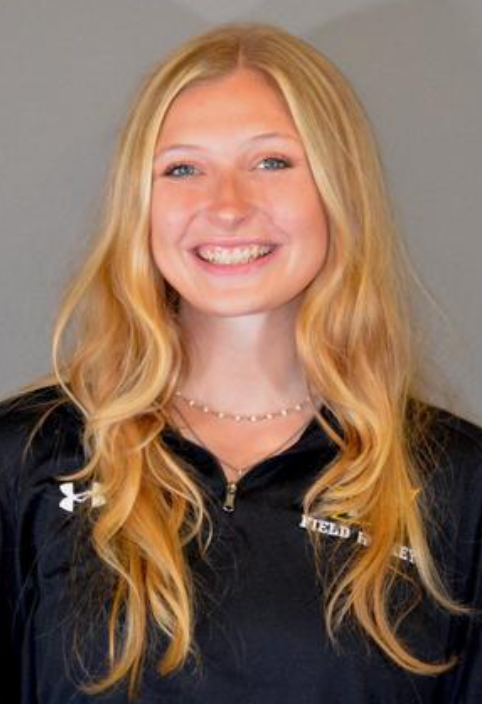Reforming the judicial system: Why we need a young adults court in York County
For an 18-year-old, one mistake can have drastic consequences. Our criminal justice system functions so that impulsive or poor decision making can follow you for the rest of your life — impacting your ability to get a job and ultimately your future. However, a recent push has swept certain parts of the country, arguing that those aged 17-25 should not be tried as adults but as a separate demographic entirely. Taking off around 2015 in San Francisco, there has been a slow spread of youth adult court programs looking to reduce recidivism and enable young adults to succeed in adulthood despite mistakes of their past. After researching the success of these programs and the reason they are so needed, I believe that this specific type of program is the type of criminal justice reform our system needs.

For those struggling to get a job or get into school/stay in school, a young adult program could benefit them to ensure they stay on the right track instead of recommitting offenses. In fact, certain programs already enacted around the country, like Orange County’s, work to assist those who have completed the program in finding stable employment or getting into college. They also help with parenting classes for those who might be young and/or single parents. This type of court is necessary in modern day. There is far too much incarceration and lasting effect for young adults who commit impulsive, non-violent crimes.
From the neuropsychological perspective, Harvard Medical Department adds that the prefrontal cortex — the part of the brain that dictates decision-making and impulse control — isn’t fully developed until the mid-20s. It doesn’t seem rational to expect those whose brains are not yet of an adult’s, particularly the regions of the brain that assist in decision-making, to still be tried as adults. Interestingly enough, the most common crimes committed of those aged 17-25 are related to impulse control issues, demonstrating that these sorts of crimes might do better and be fairer if they were tried in a young adult court.
A young adult court could also benefit those incarcerated but struggling with mental health issues that could increase the likelihood of recommitting an offense. Many of the young adult courts have instituted programs involving required treatment and therapy sessions to assist in helping those who struggle with these issues in learning how to manage and make better decisions. A court specialized to 17–25-year-olds would take a unique perspective that allows people who’ve made mistakes the opportunity to overcome, learn from their ways, and still succeed in the future. There are so many young adults who have found their futures in education or employment ruined as a result of drug charges, open container laws, underage drinking charges, and even DUIs where no one was harmed. Those charged with these crimes and other nonviolent felonies would, however, benefit from courts with specially trained prosecutors, knowledgeable judges, and less of a mandate to incarcerate.
Since 2015, other areas in the country have recognize this problem within our criminal justice system and worked to implement these courts as a solution. One of the first of its kind was located in San Francisco. Started in August 2015, this court system and program has seen general success with 150 of 371 participants completing the program. Out of those who have graduated in 2021, 73% have avoided re-arrest. In Pennington County in South Dakota, their young adult court has over 1,000 individuals involved in diversion programs where over half have made it 18 months without breaking a law, meaning they’re eligible for their charges to be cleared. The Brown County Young Adult Court Program in California just had its first graduate as well, with news sources covering the story of twenty-year-old Kassandra Nooyen who underwent meetings, drug tests, and 21 hours of addiction treatment to graduate sober and without jail time.
If counties like York were to institute this court, I would recommend a specialized court focused on limitation where the court has the discretion to choose which cases are heard based on whether it aligns with the principles of it or not. This would put greater emphasis on rehabilitation. Certain strategies that assist young adults in overcoming their felony charges include dropping the felony status to a misdemeanor or dismissing it based on completion of the young adult court program. There are also instances where completing the program can be supplemented in the process of jail time, allowing these young adults to still “pay the price” without having to undergo the often mentally strenuous and sometimes traumatizing experience of prison that can affect their emotional state for far longer than the time served.
Our criminal justice system is flawed. The consequences of a fateful mistake can follow this young adult on to grad school applications and into job interviews. It perpetuates the ongoing problem of crowded prisons and fails to meet the goals of our system to rehabilitate. There are more benefits than drawbacks in instituting a flexible version of a young adult case focused only on non-violent crimes and rehabilitation of young adults. With the right resources, planning, and execution, this could actually broaden the criminal justice system’s abilities to rehabilitate and reduce recidivism for this age demographic that seems neither juvenile nor adult.
Madeline Myers is a resident of York and a student at McDaniel College.
This article originally appeared on York Daily Record: Why we need a young adults court
